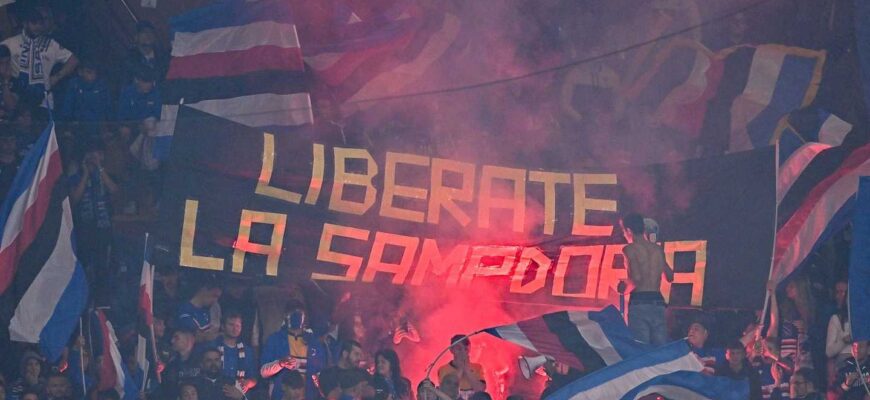In a scene that encapsulates the complex relationship between football clubs, their management, and their fervent supporters, a stark message recently appeared near the Sampdoria training ground in Bogliasco. A banner, attributed to the `Fedelissimi 1961` fan group, bore a direct and unequivocal demand aimed at the club`s leadership: “Manfredi, it`s time to step aside.”
This public display of dissent follows a period of intense anxiety for the Blucerchiati faithful, culminating in a tense Serie A relegation playout. While the team successfully navigated the crucial tie against Salernitana to retain their top-flight status, the relief felt by the fanbase appears to be overshadowed by deep-seated frustration with the club`s administration.
The banner is not an isolated incident but rather the physical manifestation of a broader, organized protest movement. Earlier in the day, the `Federclubs`, a key association representing various Sampdoria fan groups, issued a forceful statement articulating their grievances. Their message was clear and delivered without ambiguity: they had held onto hope, but patience had worn thin. The time for mere conversation, they asserted, was over; concrete actions and answers were required.
The Federclubs communiqué highlighted the supporters` unwavering loyalty to the team itself, promising they would never abandon their side. However, this loyalty does not extend to tolerating perceived mismanagement or deception. The statement took aim at what they described as silence and broken promises, criticizing leadership that seemed detached, treating Genoa – the very heart and soul of the club`s identity – as a mere afterthought rather than its pulsating core.
Demands from the organized fanbase are precise: respect, clarity, and competence. They call for a club structure and leadership truly worthy of the Sampdoria name. The Federclubs explicitly stated that the current management`s “time is up,” urging them to rectify past errors swiftly and, critically, to open the doors to new owners or partners. The crucial condition for these potential newcomers? That they demonstrate a greater dedication and care for Sampdoria than the current custodians.
The synchronized actions – the powerful official statement from Federclubs and the pointed banner from the Fedelissimi 1961 – underline the unified sentiment of the Sampdoria fanbase. Despite the successful, albeit nerve-wracking, battle for Serie A survival, the focus has firmly shifted from the pitch to the boardroom. The message delivered to Massimo Manfredi and the current hierarchy is unmistakable: staying in the league is not enough to appease supporters who feel their club is fundamentally adrift under its present stewardship. The demand for change at the very top is now louder and more visible than ever.









